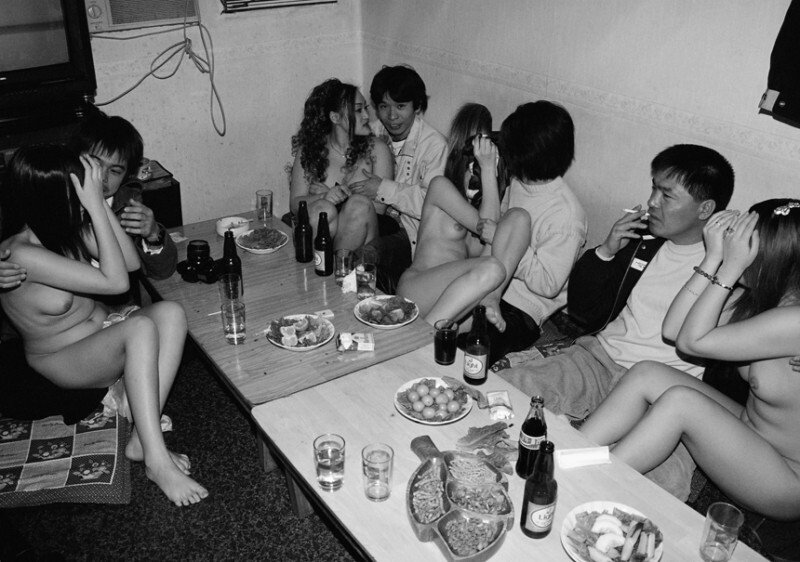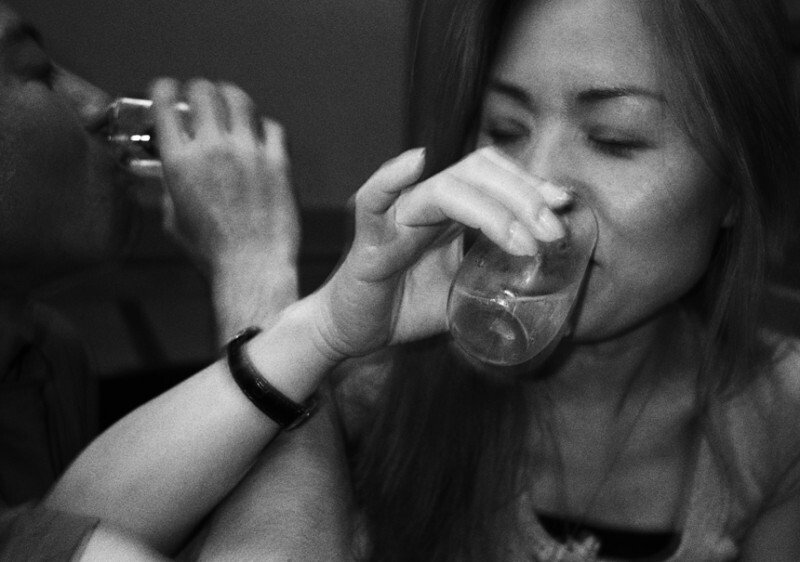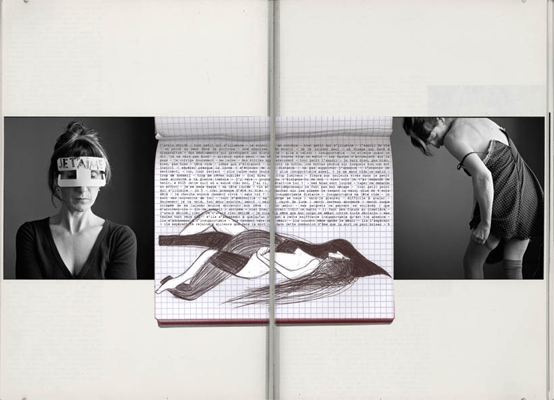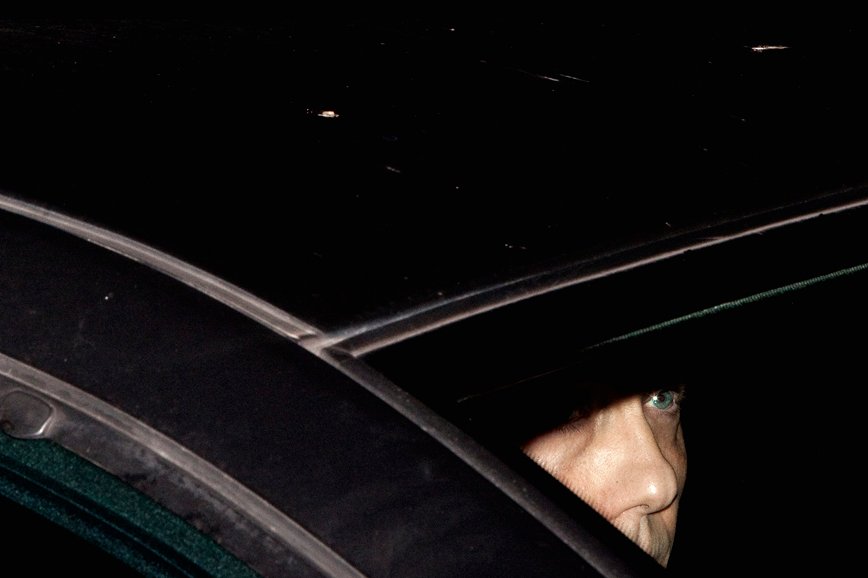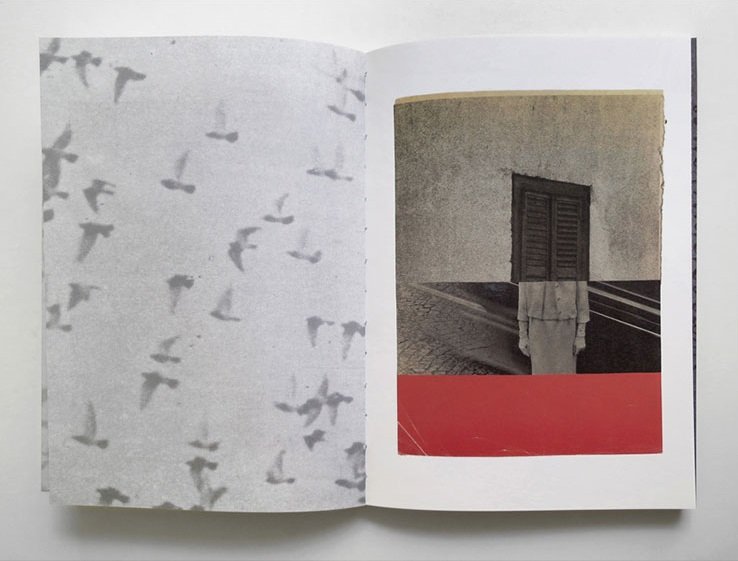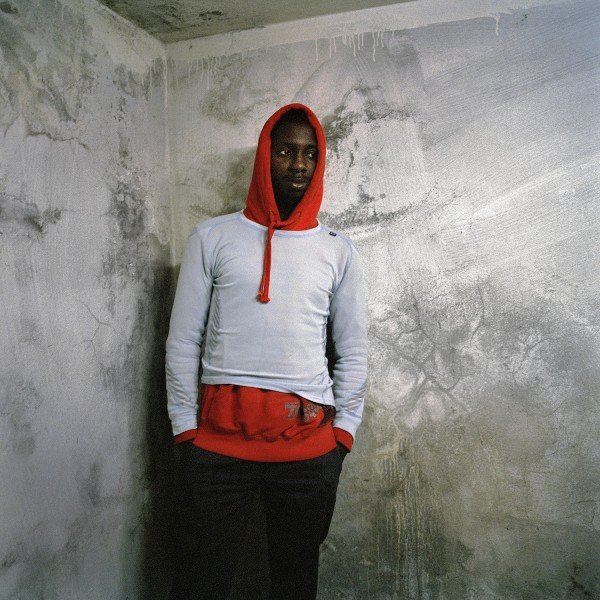THIS STORY CONTAINS EXPLICIT CONTENT
Korea-
Yang Seung-woo is a Korean born photographer who currently resides in Tokyo, he has stimulating series of photographs that have developed from his choice in location but one in particular that tells a curious story from an unusual point of view. Yang speaks to Emaho about his insider’s perspective in the Korean underworld and how this life influenced him as a photographer.
Lauren- Can you tell us about how your past life impacted your decision to start photography? Was it escapism that drove you to want to change your path in life?
Seungwoo- It was not my past, but a death of a friend that made me decide. When I came to Japan, I separated myself from my past life but my friends are my friends, I am still in touch with them.
Lauren- With your work, would you consider it to be more of an exploration of self, or an exploration of photography? Why have you chosen it to be your means of expression?
Seungwoo- I would say it is more of an exploration of myself and things around me, in a sense that I could see both myself and my surroundings from a different distance by taking photos. I chose photography because it was the closest and accessible tool for me at that time.
 ©Seungwoo Yang
©Seungwoo Yang
Lauren- Was creating ‘The Best Days’ effectively a nostalgia trip? Did you craft the project for yourself or to invite others to have an insight into that world?
Seungwoo- It is not a nostalgia trip. I just wanted to document the people around myself, as I noticed people start to forget that someone existed very soon after one dies. I created it by myself and did all the editing process too.
Lauren- The themes running throughout some images are those that are considered by most to reside on the darker side of life; gambling, sex, substance abuse, fear, desire. You obviously lived a life of an underdog, can you tell us more about who you were back then?
Seungwoo- I fought a lot as I was from the countryside where we were good at fighting. I was not a good gambler, so I didn’t do it, and I have never used any drugs. With sex, I guess I have experienced no more than other people have experienced. I just took the photos in these situations. Maybe my surroundings were not very ordinary though. If anyone photographs everything about himself or herself, there could be similarities between us.
Lauren- There cannot be many who have had such access to the world of active gangsters. Were the people you photographed receptive to the camera or did you have any issues during the project?
Seungwoo- There was no trouble. Some of my friends joined gang groups so the access to these gangsters was not difficult. In Korea or Japan, you can see these gangsters crossing streets so that world is not as isolated as you may think.
 ©Seungwoo Yang
©Seungwoo Yang
Lauren- In some photographs you are very intrusive with your camera, there seems to be nothing you didn’t want to show. Are your intentions to create photographs with a sense of rawness and candidness rather than something that has been over-thought and over-produced?
Seungwoo- Yes.
Lauren- How would you describe your style of photography? To me it seems like it comes very naturally to you. Where do your references come from?
Seungwoo- There is no reference to a person or a work. I just photograph what I want to photograph in the way I like.
Lauren- As you had an insider’s perspective your photographs are very honest and exist as a truthful portrayal of the Korean underworld as you know it. Why was it important for you to take a step back from your surroundings to take the time to document these days of your life?
Seungwoo- I took these photos from 2000-2005, so I did not really step back to photograph these days of my life. It is just that these photos were not shown in public for some years. There is a reference in the epilogue of the photo book in terms of how I started photographing them. The Korean underworld is part of my history, and there are some friends who still live in that world and in The Best Days they are in the photos too. The Korean underground is not the main theme, just one of the elements.
 ©Seungwoo Yang
©Seungwoo Yang
Lauren- What do the photographs represent to you and is that what you would like them to represent to others?
Seungwoo- I just wanted to leave something like a proof that these people, including me, certainly exist, in a shape of a photo book.
Lauren- What has the reception been like to the book?
Seungwoo- Mostly the reception has been good, but rarely there are people who see it with full of biases. I always have a lot of things that I want to try, but one of the things that made me feel good after I made this book was that I could exhibit my photos abroad.
Lauren- Do you believe that there is a subjective language in photography? Is it possible to communicate all of the emotions that you are trying to portray to an outer world with photography as the subjective document?
Seungwoo- I think there is a subjective language in photography, but at the same time I believe it is difficult to communicate everything.
 ©Seungwoo Yang
©Seungwoo Yang
Lauren- What do you see or feel when you look back at the photos? You have mentioned you wouldn’t want to return to Korea. Do they haunt you in any way or can you detach yourself from those times?
Seungwoo- I feel it is a good photo book. These photos are not published in Korea; I don’t want to go back to Korea because the environment in Japan is better than the one there. As I started photography in Japan, my base as a photographer is here and more people understand my photos.
I distance myself from myself of those days. I am old enough now to do that. I see it objectively. I even see the country of Korea objectively, too.
Lauren- Was it a difficult transition to remove yourself from the smaller circle of the Yakuza into a normal lifestyle? Any culture shocks between South Korea and Japan?
Seungwoo- I was just a young man who liked fighting and friends. I hated to belong to any organisation, I acted following my belief, and so I could change my life any time if I wished to do so. I was culture shocked by the politeness of Japanese people. I started to feel Japan was getting smaller for me about 2-3 years ago, so if I have a chance then I will exhibit my photos abroad. I started to learn English recently, too.
Lauren- Are you still in touch with your friends from the ‘The Best Days’? Has anyone come out to the other side like you?
Seungwoo- I am still in touch with most of them. Not all of the people I photographed were gangsters, some of them started to work at an office after graduating school, or were living an ordinary life from the beginning.
Lauren- Whether you’re in the image or shooting it, you seem to have a dialogue with the subject/s of the photograph, for example Gonta, the homeless man you documented. Does this relationship pursue certain goals or does it emerge by itself in the work process?
Seungwoo- It emerged by itself in the work process.
 ©Seungwoo Yang
©Seungwoo Yang
Lauren- Most of your projects are focused around the idea of memory, can you explain some more about this…
Seungwoo- I think memory of the past takes up a big part of our ideas and creativity. And that is why my projects evolve in that way by themselves.
Lauren- Can you tell us more about your current project documenting the nightlife in the Shinjuku district of Japan? Does it hold any parallels to your previous work?
Seungwoo- I don’t mean to, but I often spotlight something that does not get attention usually, I guess that is the similarity to my previous work. Here is an extract:
LOST CHILD
Shinjyuku Kabuki-cho
My heart starts beating faster, as I walk toward Kabuki-cho from Shinjyuku station west exit.
That is a town that I can get glimpses of human desires.
The scenery attracts me so much.
I feel nice when I lie down facing up on cardboard, under the sparkling neons.
I can feel like I am out of the circle of this society, and can think about things and myself from different perspective. It is the best to lay down on cardboard when I get rattled.
It was a night after photographing Shinjyuku Kabuki-cho for 3 years. I found a small child sleeping on cardboard in front of Shinjyuku Koma theatre. I liked to photograph which is visibly striking at that time, I followed them, and felt like I witnessed something real about this town.
And I could not stop looking at them.
I started to see the town carefully after the time people go to bed, and I noticed children who couldn’t sleep in this sleepless town.
“Homeless” kids, kids waiting for their mothers who are working in the town at night, or kinds who just stay in the town as they followed their parents who came to the town to work from countryside and just do not have any other places to stay.
He/she came to the town with adults, and disappeared with adults.
Now, “Kabuki-cho clear up plan” were executed under Tokyo governor, and the town has changed.
I wonder where are they. Is there any new places for them to stay?
Now, new “lost children” started to appear, to fill Kabuki-cho.
 ©Seungwoo Yang
©Seungwoo Yang
Lauren- In the epilogue of ‘The Best Days’, you quote “Now though My Youth, Act Two begins, A better life.” Has your life changed for the better and how will it continue to evolve?
Seungwoo- It changed. I don’t know how it will change in the future; I guess it is up to myself and the situation that surrounds me.
Photography and Interviewed by Lauren Schofield
Translated by Mitsu Maeda (Japanese to English)
Yang Seung-woo’s exhibition “WE’ RE SHIT BUT CHAMPIONS” is going on at Reminders Stronghold Gallery, Tokyo, Japan.
略歴
梁丞佑
韓国出身、日本在住写真家。
昔の友人が自殺し、数ヶ月もしないうちにほとんどの人は彼ことを忘れてしまったのを目の当たりにして悲しくなった。そして自分もそのうちそうなると思った。
彼は自分の「死」をもって「生」をおしえてくれた。そのとき何かしなければと感じた。そしてその日から、自分の周りを写真に撮り始めた。それしか方法を思いつかなかったから。
「韓国は狭すぎると思うようになった。だから来日した。1997年語学を、1998年から写真を学びはじめた。出国当時、ヤン氏は韓国マフィアの完全な構成員ではなかった。彼も彼の友人も、犯罪の片棒を担いで、その世界に入ろうかとふざけ、結果としてその世界に入ることなどないと考えていた。しかし彼は、犯罪に関わることは若げの至りではすまないだろうと、彼の人生についてたしかに案じ始めていた。」
彼は16年間ずっと東京に住んでいる。
昔の仲間が一人が死んだ。
自殺だった。
奴が死んでも何ひとつ変わったことはない。
仲間達はもう奴のことを忘れていく。
そして俺も奴のことを忘れていく。
奴の顔が見たくて写真を探してみた。
一枚もなかった。
自分が大事だと思っている仲間だったのに。
いずれは、自分もこの世から消える。
そう思うと、撮りたくなった。
そしてやっと気づいた。
 ©Seungwoo Yang
©Seungwoo Yang
僕らは最悪だ。
しかし、最高だ。
いくつになってもカッコつけて、会えば昔の武勇伝。
何をやっているんだか。
だが、彼らと過ごした日々は、
さらには、自分のくだらない日々さえも、
人生の吉日だ。
その事を奴は「身をもって」教えてくれた。
もっと早く気づけば良かった。
今更言っても仕方が無いから、
今をもって
青春第2幕をはじめよう。
より良き人生を。
ウェブサイト
質問
ーあなたが過去に経験したことが、写真を撮り始める決意にどう影響を与えましたか?過去に自分が人生でたどってきた道を抜け出したいという強い思いだったのでしょうか。
A, 過去がではなく、彼の死が私を決意させました。日本に来た時点で過去とは決別したつもりです。友人は友人で変わらず付き合いがあったというだけの話です。
ーあなたの写真について、自分自身の探索だと思いますか、写真の追求だと思いますか?なぜ写真を表現方法として選びましたか?
A 、自分の身の回り、親しい友人を撮ることですこし離れてそれらをみることができた、という意味では自分自身の探索です。なぜ写真かというと、その時は自分にとって一番身近な表現ツールだったからです。
 ©Seungwoo Yang
©Seungwoo Yang
ーThe Best Daysを作り上げることは、事実上過去への回帰でしたか?このプロジェクトは自分自身で作り上げていきましたか、それともそのプロジェクトの世界へ他の人々の洞察は含まれましたか?
A, 過去への回帰ではありません。
自分も、自分の周りの友人たちも、死んだらすぐに忘れさられてしまう、それらを記録し、残したかったのです。
自分自身で作り上げました。編集作業なども自分で行いました。
ーいくつかのイメージを通じるテーマは、ほとんどの見る人にとってはギャンブル、セックス、薬物乱用、恐怖、そして欲望と、人生の陰の部分に寄っていると思われるでしょう。あなたはたしかに普通ではない生活をしていた、その当時のあなた自身についてお聞かせいただけますか。
A, 田舎育ちで喧嘩は強かったので喧嘩はたくさんしましたが、私自身はギャンブルは弱かったのでせず、薬物もしていません。セックスについてはみなさんと、そう変わらないと思います。わたしはただそれを写真に撮って残したというだけです。ただ周囲は特殊な環境だったかもしれませんが。
みなさんも、自分自身の全てを写真におさめると私に似た部分が発見されるかもしれません。
ー活動しているギャングの世界へのアクセスがある人はほとんどいないでしょう。あなたが撮影した人々はカメラを受け入れましたか、それともこのプロジェクト撮影中なにかトラブルになったことはありましたか。
A トラブルはないです。
友人で何人かが、ギャングになったのでアクセスは簡単でした。韓国や日本はではギャングも普通に町をあるいていますし、そんなに隔絶された世界ではありません。
 ©Seungwoo Yang
©Seungwoo Yang
ーいくつかの写真は非常に立ち入ったもので、あなたには何も見せたくないものはないように思われます。意図的にあなたはこの作品を、考え込まれ、作り込まれた何かというよりはむしろ、生の、率直な感覚もつ写真にしたのでしょうか。
A そうですね。
ーあなた自身の写真のスタイルをどう考えますか。私にはそのスタイルがあなたがとても自然にとったもののように感じます、参考にしたモノ、人はありますか?
A, 参考にしたものもないし、参考にした人もいません。撮りたいものを撮りたいように撮っています。
ー内部からの視点を持っているので、あなたの写真はとても率直で、あなたの知っている通りの韓国のアンダーワールドを誠実に写しています。なぜあなたにとって、自分の身の回りから立ち戻り、あなたの人生にあったそれらの日々を記録することが大切だったのですか?
A.この作品は2000年〜2005年あたりまでに撮りためたもので、今の私が立ち戻って撮影したわけではありません。何年もの間作品に光があたらなかっただけです。撮影のきっかけは写真集のエピローグを参照してください。
韓国のアンダーワールドは梁さんという人がこれまで生きてきた過程の一部であり、友人にはその中で生きている人がいる。だから青春吉日には彼らの姿もうつっており、当然そうでない人もうつっている。青春吉日のなかで韓国のアンダーワールドは主題ではなく、一つの要素としてあります。
 ©Seungwoo Yang
©Seungwoo Yang
ー青春吉日の写真とはあなたにとってなにを意味しますか、そしてそれは他者に対して写真が意味してほしいことですか?
A 忘れ去られてしまうだろう人、物事を、彼らが確かに存在していると、写真として残したかった。
ー写真集に対する周りからの反応はどうでしたか?なにかあなたに他にしたいことができましたか?
A, 概ね良好ですが、稀に偏見に満ちた見方をする人もいます。
他にしたい事は、いつもたくさんあります。
ー写真集を作品として出したことによる周りからの反応で、梁さんのなかでなにか考えたこととか、これからやりたいことに影響は与えられたことはありますか?
A 考えたことは特にないですが。この作品を写真集にしてもらったということがきっかけで、海外で展示をしたいという希望がかなったという事が影響をうけた事になるでしょうか。
 ©Seungwoo Yang
©Seungwoo Yang
ー写真に客観的なことばがあると思いますか?客観的なことばとして写真を通じ外の世界に対して描こうとするすべての感情を伝えることができると思いますか?
A 客観的な言葉はあると思います。しかし、すべてを伝える事は難しいとおもいます。
ーそれらの写真を見返してどう感じますか?韓国には戻りたくないとのことでしたが、それらの写真は何らかの形であなたにつきまとっていますか、または当時のあなたから距離を置くことはできますか?
A 良い写真集だとおもいます。
韓国では私の写真は全く発表されていないですし特に影響はありません。
韓国より日本の方が環境が良いから帰らないだけです。
ー環境がいい、というのは、具体的にはどういった面でですか?
A 写真をやって行く事の面で環境が良いという事です。写真の勉強を始めたのも日本ですので写真をやって行く上での地盤、理解者は韓国にはいないからです。
 ©Seungwoo Yang
©Seungwoo Yang
ー例えば韓国に戻ることは、当時の自分との距離がとれなくなることを梁さんにとって意味しますか?
A 違います。もう若くもないし。客観的にみています。韓国という国自体さえ客観的に見ている自分もいます。
ー小さなやくざの集まりから離れ普通の生活にうつっていくことは難しい転換でしたか?韓国と日本でのカルチャーショックはありましたか?
A 私はただの喧嘩と親友が好きな、やんちゃな若者でした。組織に属する事が嫌いで自分の信念に従って行動したので、自分が生活を変えようと思えば簡単に変える事ができました。
カルチャーショックは、日本人の行儀の良さです。
 ©Seungwoo Yang
©Seungwoo Yang
ー韓国は小さすぎるようになっていた、とありましたが、日本は小さすぎませんか?
A 2,3年前から思い始めました.ですので海外で展示できる機会があればしていますし、最近はやっと英語を勉強中です。
ーthe Best Daysからの友達とまだ連絡をとっていますか?あなたのようにもう一つの世界に出た人もいますか?
A 連絡をとっている人が多いです。
写っている人がすべてギャングではなく、やんちゃだったのは学生時代までで、普通に社会人になった人もいますし、もとから普通の生活をしている人もたくさん写っています。
ー写真にうつっていても撮っていても、あなたには被写体との対話があるように思えます、例えばあなたの撮ったごんたというホームレスの男性のように。この関係性は設定されたゴールを追求するものですか、もしくは撮影の過程でうまれてきたものですか?
A 撮影の過程でうまれたものです。
 ©Seungwoo Yang
©Seungwoo Yang
ーあなたのプロジェクトは記憶という考えに焦点をあてたものが多いです、このことについて詳しく教えてくれますか
A アイデアや創作意欲というのは過去の記憶が多くを担っているところがあると思います。
ですから自ずとそのようになるのだと思います。
ー現在あなたの撮影している夜の新宿のプロジェクトについて教えてもらえますか、あなたの以前のプロジェクトと類似するところはありますか?
A プロジェクトについては添付文書を参照 ※1
特に意識はしていないですが、普段光を浴びないところにスポットを当てるという事が多いのでそこが類似点だとは思います。
ー青春吉日のエピローグに、「今をもって青春第2幕をはじめよう。より良き人生を。」と引用がされています。あなたの人生はよりよいほうに変わりましたか、そしてそれはどうかわっていくのでしょうか?
A 変わりました。
これから先、どう変わって行くかは分かりません。自分と周囲次第といったところでしょうか。
 ©Seungwoo Yang
©Seungwoo Yang




